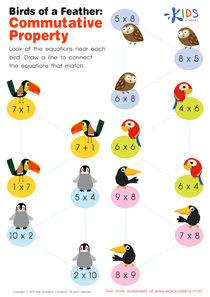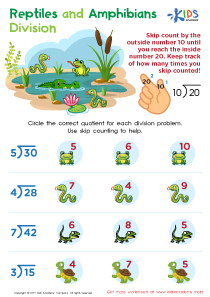Reading Skills Grade 3 Multiplication Worksheets
3 filtered results
-
From - To
Discover our engaging Grade 3 Multiplication Worksheets designed to enhance reading skills through fun math challenges! These interactive worksheets aim to integrate reading comprehension with multiplication practice, allowing students to navigate word problems and mathematical concepts simultaneously. Perfect for reinforcing critical thinking, our resources feature clear instructions and supportive visuals to help third graders grasp multiplication while improving their reading abilities. Whether used in the classroom or for at-home learning, these worksheets are tailored to foster independent learning and boost confidence in math. Explore our variety of multiplication exercises today and support your child in mastering essential skills every young learner needs!
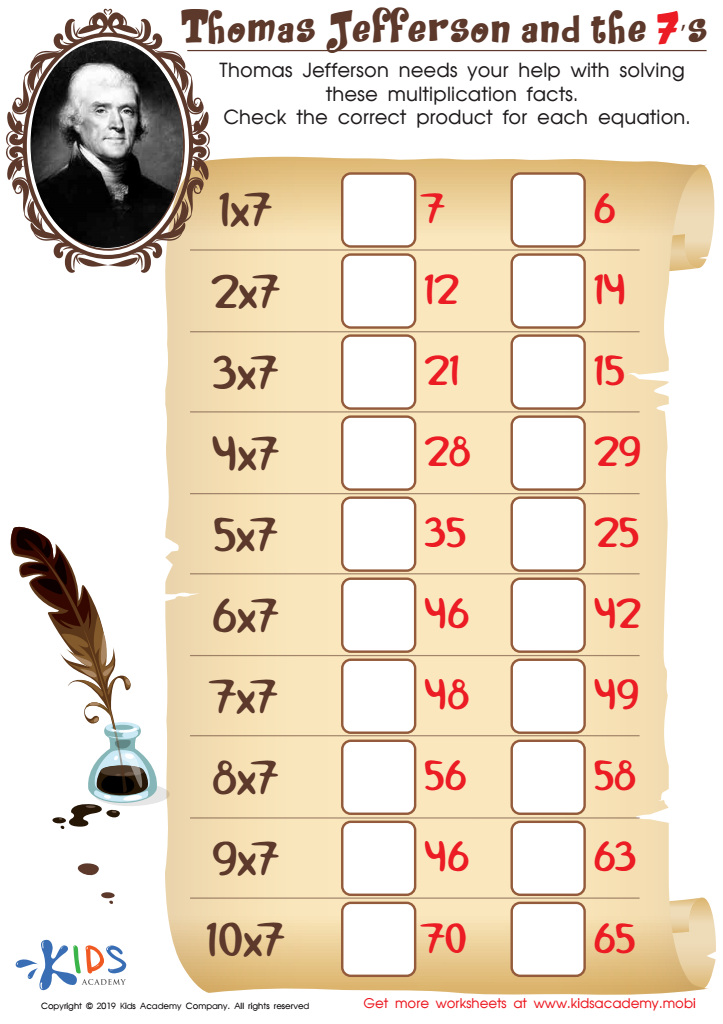

Thomas Jefferson and the 7’s Worksheet
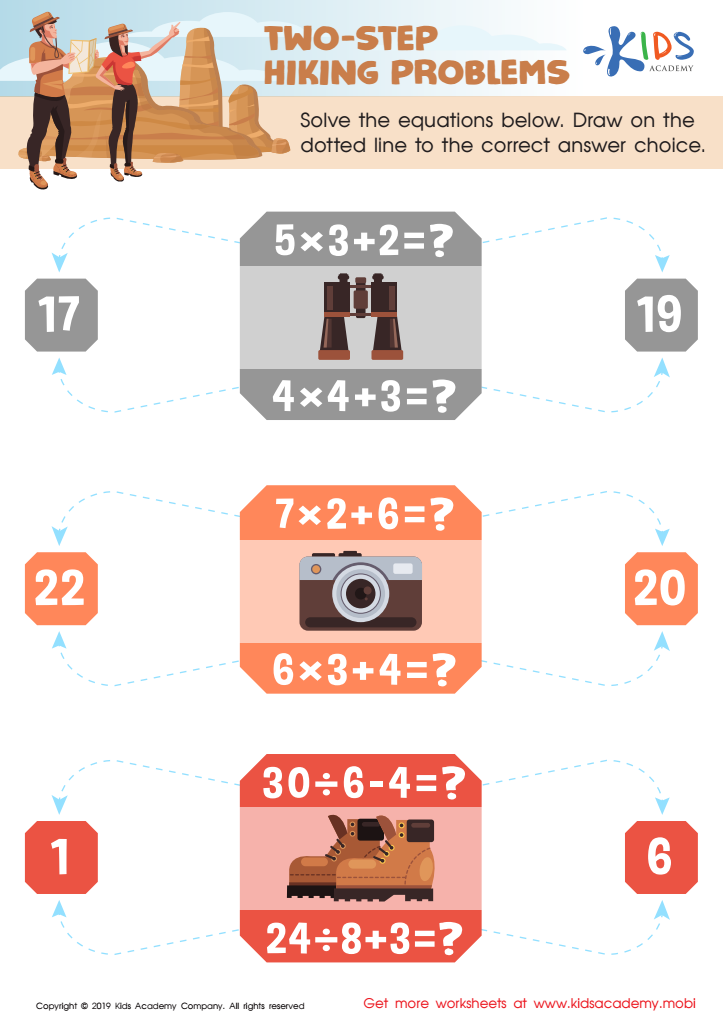

Two-Step Hiking Problems Worksheet
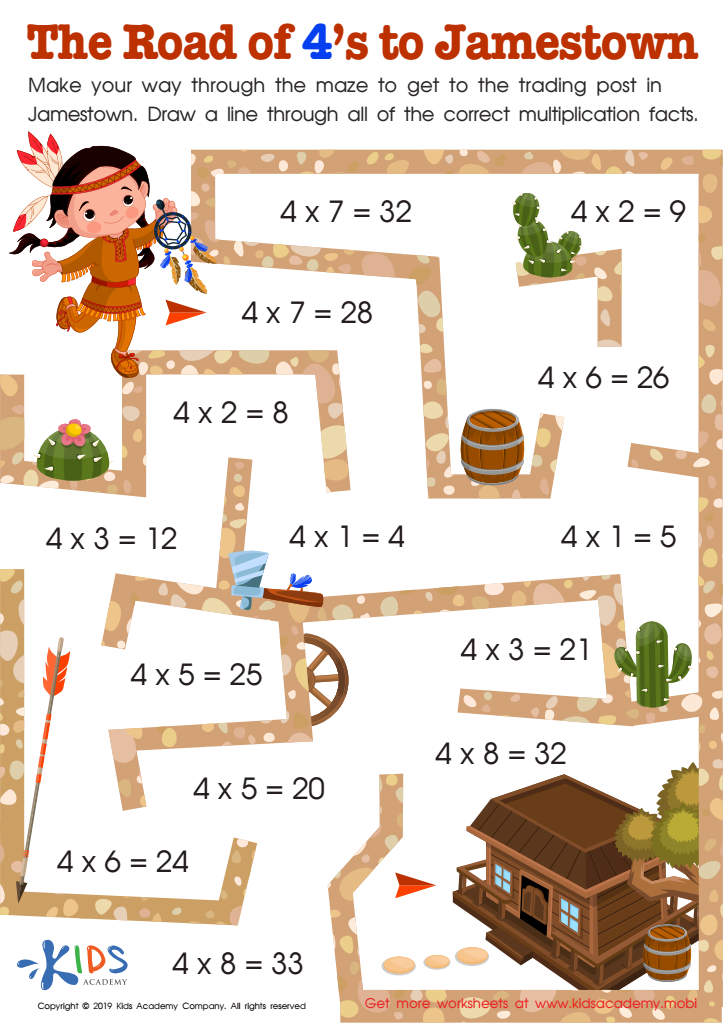

The Road of 4’s to Jamestown Worksheet
Reading skills and multiplication are foundational aspects of a child's education, particularly by Grade 3. At this stage, children transition from learning to read to reading to learn, making literacy crucial for academic success across all subjects. Strong reading skills enable students to comprehend math problems, follow instructions, and engage effectively with word problems in multiplication, an essential arithmetic skill.
Understanding multiplication concepts supports not only basic arithmetic proficiency but also sets the stage for future math learning, including division, fractions, and more advanced mathematics. If students struggle with reading, they may have difficulties interpreting and solving multiplication problems, which can lead to decreased confidence and increased frustration in math classes.
Parents and teachers should care about these skills because they are interconnected. By fostering strong reading abilities, students are better equipped to master multiplication and other mathematical concepts. Encouraging practices such as guided reading and interactive math activities can enhance both reading comprehension and multiplication skills.
In essence, prioritizing reading and multiplication early on helps develop critical thinking, problem-solving abilities, and ultimately lays a solid foundation for lifelong learning and future academic successes. Supporting children in these areas is an investment in their long-term educational journey.
 Assign to My Students
Assign to My Students











